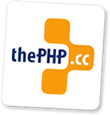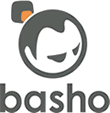Conférence PHP
PHP
One of the biggest bottlenecks in an application is the point at which data is requested from some source, be it a traditional database, web service, or something else. One method to overcome these bottlenecks is the use of caches to store pages, recordsets, objects, sessions, and more. In this talk, we'll explore a variety of caching tools and mechanisms including Memcached, Redis, reverse proxy caches, CDNs, and more.
PHP
CakePHP is part of the old guard in the framework space. Throughout its life many things have been added/removed and changed. I’ll be taking a look at some of the mistakes we made, how things went wrong, and how we’ve tried to resolve those problems.
In addition to the framework code itself, I’ll be discussing some of the tooling around the project that people may not have considered, but are vitall
In addition to the framework code itself, I’ll be discussing some of the tooling around the project that people may not have considered, but are vitall
PHP
PHPUnit has had support for code coverage analysis for a long time. This is one of the features that is extended and improved with each release of PHPUnit. This session, presented by the creator of PHPUnit, will code all aspects of PHPUnit's code coverage functionality in depth. Attendees of this session will learn how to leverage this important functionality more effectively to augment and guide their testing effort.
PHP
Le TDD (Test Driven Development) gagne en popularité dans la communauté PHP. C’est maintenant une pratique accepté. Mais commencer peut sembler difficile.
Dans cette session, nous allons voir ce qu’est le TDD. Nous allons commencer par voir les principes. Puis les outils utilisés, et comment s’en servir au quotidien. Nous allons aussi voir les difficultés souvent rencontrées et comment les contourner.
Dans cette session, nous allons voir ce qu’est le TDD. Nous allons commencer par voir les principes. Puis les outils utilisés, et comment s’en servir au quotidien. Nous allons aussi voir les difficultés souvent rencontrées et comment les contourner.
PHP
A few years ago, I had an idea to add a new function to PHP: array_column(). Starting out on this journey can be daunting to user-land developers unfamiliar with the landscape of the PHP internals. In this talk, I demystify this process, explaining how to set up an environment, create an RFC, communicate on the mailing lists, and send a pull request. I hope this talk will encourage you to scratch your own itch and contribute to the PHP core.
PHP
Bitcoin and other distributed virtual currencies are revolutionizing how monetary value is stored and exchanged on the Internet. Key opportunities and risks will be described. The two main objectives of this talk will be to explain the underlying blockchain and cryptology technologies that make them work, and to demonstrate PHP recipes for using the web services that enable payment processing, identity validation, and smart contract execution.
PHP
If your web application exists on the public Internet, someone *will* try to exploit it.
Many of these are un-targeted & scripted, their authors hoping that their target will fall to one of the hundreds of un-patched vulnerabilities in frameworks, blog engines or storefronts. Let's go through some common and uncommon exploits in the wild, starting from their traces in server logs, and see how we can detect them and better protect ourselves.
Many of these are un-targeted & scripted, their authors hoping that their target will fall to one of the hundreds of un-patched vulnerabilities in frameworks, blog engines or storefronts. Let's go through some common and uncommon exploits in the wild, starting from their traces in server logs, and see how we can detect them and better protect ourselves.
PHP
Adam Culp will give a basic intro to Zend Framework 2 (ZF2) and how to use the foundational pieces. We will get a Zend Framework 2 application up and running quickly using the Zend Framework 2 Skeleton Application, and Zend Skeleton Module to add modules. Adam will also introduce some useful resources to help attendees continue learning on their own. The talk will give attendees enough information to get a jump start into using ZF2.
PHP
L’intégration continue permet d’exécuter automatiquement les tests à chaque fois que du code est poussé.
Nous allons voir les types de tests qu’un serveur d’intégration continue peut exécuter. Comment créer le script ‘build’. Et comment configurer Jenkins pour qu’il exécute le build et affiche les rapport produits.
Nous allons voir les types de tests qu’un serveur d’intégration continue peut exécuter. Comment créer le script ‘build’. Et comment configurer Jenkins pour qu’il exécute le build et affiche les rapport produits.
PHP
Facebook introduced Hack lang for HHVM in March, 25 2014. So what's Hack? It's an almost interoperable language with PHP that tries to introduce new features to PHP. You get static typing, enforced typing hinting, generics among other features.
We will go through a few example to see what can Hack offer for a PHP developer.
We will go through a few example to see what can Hack offer for a PHP developer.
PHP
Are you still stuck on PHP 5.2? Looking to migrate from 5.3 to the latest and greatest?
This talk will cover all the best new features and tooling since PHP 5.3, all the way up to PHP 5.6 and beyond.
Namespaces, Closures, Traits, Generators, Variadics/Argument unpacking, and more!
This talk will cover all the best new features and tooling since PHP 5.3, all the way up to PHP 5.6 and beyond.
Namespaces, Closures, Traits, Generators, Variadics/Argument unpacking, and more!
PHP
Performance issues can be caused by many things, from database interactions, i/o and, less frequently, the code itself.
This talk will take that profiling a step further and look under the hood of PHP, at the C internals of how things tick.
This talk covers what every PHP developer should know about their tools — like what's really going on when you use double quotes vs single quotes.
This talk will take that profiling a step further and look under the hood of PHP, at the C internals of how things tick.
This talk covers what every PHP developer should know about their tools — like what's really going on when you use double quotes vs single quotes.
PHP
Measuring and improving the performance of your PHP application is critical to giving your customers a great experience. To get the deep understanding where the performance flaws lay you need a profiler. XHProf is an open source, minimal overhead profiling tool for PHP that can be easily deployed on any machine and readily provide the answers to your performance questions.
PHP
The Symfony full-stack framework and its Standard Edition are so flexible that you can build your application the way you want. When it comes to build a Symfony application, many architectural questions arise and everyone tries to give his\her Symfony best practices. This talk will introduce some of the new best practices recommended by the Symfony core team and SensioLabs to make your code follow the standards!
PHP
From ReactPHP to Facebook Hack's Async implementation and many more, asynchronous programming has been a 'hot' topic lately. But how well does async programming support work in PHP and what can you actually use it for in your projects ? Let's look at some real-world use cases and how they leverage the power of async to do things you didn't know PHP could do.
PHP
Horizontal scalability has always been at the core of PHP application design, and in the cloud, that approach shines the brightest. But to fully leverage the power and convenience of PaaS offerings such as Heroku, it's worth following certain best practices and methodologies when developing applications. This presentation covers and demos the steps from code and dependency management over configuration to maintaining dev/prod environment parity.
PHP
Describing an alternative to various common (H)MVC architectures this talk demos the architecture behind the researchgate.net platform.
Using a component based approach enables developers to take page elements, like a single "follow" button, and place it everywhere on the site without having to duplicate any PHP, JS, HTML, CSS or AJAX endpoints in the process.
It goes on to show what scalability, performance and UX implications this has.
Using a component based approach enables developers to take page elements, like a single "follow" button, and place it everywhere on the site without having to duplicate any PHP, JS, HTML, CSS or AJAX endpoints in the process.
It goes on to show what scalability, performance and UX implications this has.
PHP
Developers usually have their favourite framework. But when did they choose it, and why? Was the decision rational, or rather emotional? This talk will not name "the best framework", but rather give the attendees a good background on how and why to choose frameworks and third-party-code in general. Topics covered include code quality, metrics, sustainability, and performing a general project assessment.
PHP
Writing PHP code to run in unknown environments is hard. Writing self-hosted products and library code presents a unique set of challenges to cope with different PHP versions, available C libraries and hosting platforms. Hear some of the lessons we've learned in 5 years developing a self-hosted PHP CMS, including practical tips for writing code to run in as many places as possible.
© 2010-2025 ConFoo. Tous droits réservés. Code de conduite
Gestion des Cookies
Pour offrir une bonne expérience, l'utilisation de cookies est nécessaire. Certains sont essentiels au bon fonctionnement du site, tandis que d'autres nous aident à mieux répondre à vos intérêts.
































